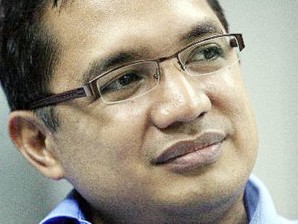The state-run Philippine Children’s Medical Center (PCMC) has continued the practice of making desperate patients give up their personal belongings to cover their hospital expenses and was even auctioning off these items, party-list member Teodoro Casiño (Bayan Muna) said Wednesday.
Casiño said he had obtained documents, dated May and July 2012, showing that the hospital was selling the items left behind as collateral by patients.
A July-dated document, for instance, set out the guidelines for a July 25-August 10 bidding, while another document, dated May 2012, listed several items for sale and invited parties to bid for them.
The items included 10 cameras, 21 DVD players, 46 pieces of jewelry, 13 gadgets, including iPods, 92 watches and 16 assorted pieces.
According to Casiño, he had exposed this dismaying practice of the PCMC last year but it was apparently still continuing despite statements from the Department of Health that it would look for other ways to deal with patients’ unpaid hospital bills.
“Requiring patients to turn over their valuables as collateral for unpaid bills is heartless and unjust, if not tasteless,” he said.
“This is feeding on the misery of poor patients. Should public hospitals resort to such practices to cover the severely insufficient budget for hospitals?” he asked.
Casiño said he had brought up the matter with Health Secretary Enrique Ona, who did not seem to know about it.
He said Ona had said he would fire the hospital director if the practice was not stopped.
Assistant Secretary Eric Tayag on Wednesday said the Department of Health had already ordered the PCMC to stop the auction of the personal belongings of patients.
In a radio interview, Tayag said Ona had already asked the officials of the hospital to stop the practice of taking personal belongings of patients as collateral for unpaid hospital bills.
“Although under the law patients are allowed to make a promissory note, many of them would rather give up their personal belongings to make up for the lack of money to pay the hospital bill,” he said.
Tayag reminded those in areas covered by the government’s conditional cash transfer program that they were automatic members of the PhilHealth state medical insurance program, which offers discounts for hospital services.
“And if they avail themselves of services in government hospitals, they will not have to spend even a single centavo,” he said.
Casiño said the practice being resorted to by the PCMC was a clear indication that the budget for public hospitals must be increased.
He noted that under the proposed 2013 budget, the allocation for the PCMC for poor patients and those patients subsidized by the state would be reduced by P100 million. It has been reduced to P345 million, from P445 million. With a report from Jocelyn Uy
